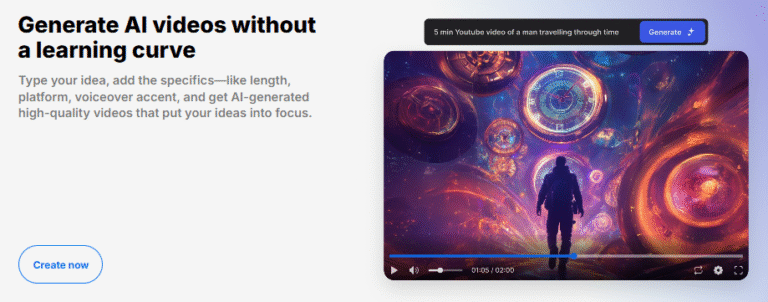ElevenLabs API Documentation: The Complete Developer’s Guide
In the evolving world of AI-generated voice and speech technology, ElevenLabs has emerged as one of the most powerful platforms. Its Text-to-Speech (TTS) API offers developers a streamlined way to integrate natural-sounding voices into their applications, products, and platforms.
This comprehensive guide will walk you through the ElevenLabs API documentation, offering step-by-step guidance on authentication, endpoints, response formats, error handling, and best practices — everything you need to build a robust integration with ElevenLabs.
Getting Started with ElevenLabs API
Before using ElevenLabs’ services, you need access to an API key. This key acts as your gateway to interacting with ElevenLabs’ AI voice engine.
1. Creating an ElevenLabs Account
- Visit the ElevenLabs official website
- Sign up with your email or social login.
- Navigate to the “Profile” or “API Key” section to retrieve your personal API key.
- Store this key securely. Never expose it in frontend code or public repositories.

Authentication: Secure Access to the API
The ElevenLabs API uses token-based authentication via an API key.
Header Format:
httpCopyEdit'xi-api-key': YOUR_API_KEY
Example (cURL):
bashCopyEditcurl -H "xi-api-key: YOUR_API_KEY" https://api.elevenlabs.io/v1/voices
This key must be included in every request header to authenticate your usage.
Text-to-Speech API Endpoint
The TTS endpoint is the core function of ElevenLabs. It converts your input text into realistic voice audio.
POST /v1/text-to-speech/{voice_id}
URL:
bashCopyEdithttps://api.elevenlabs.io/v1/text-to-speech/{voice_id}
Required Headers:
httpCopyEditContent-Type: application/json
xi-api-key: YOUR_API_KEY
Sample Request Body:
jsonCopyEdit{
"text": "Welcome to ElevenLabs, where AI meets realistic speech.",
"voice_settings": {
"stability": 0.5,
"similarity_boost": 0.7
}
}
Optional Parameters:
- stability: Controls how stable and consistent the voice is.
- similarity_boost: Boosts the similarity to the original voice identity.
Voice ID:
You must pass a voice_id. Use the /v1/voices endpoint to list available voices.
Streaming Speech Audio
If you prefer streaming audio instead of downloading the full audio at once, use this method.
Endpoint:
bashCopyEdithttps://api.elevenlabs.io/v1/text-to-speech/{voice_id}/stream
Sample cURL for Streaming:
bashCopyEditcurl -X POST "https://api.elevenlabs.io/v1/text-to-speech/VOICE_ID/stream" \
-H "xi-api-key: YOUR_API_KEY" \
-H "Content-Type: application/json" \
--data-raw '{
"text": "Real-time speech streaming with ElevenLabs."
}' --output audio.mp3
Voice Cloning with 11ElevenLabs API
One of the most powerful features is the ability to clone voices and use them in your applications.
POST /v1/voices/add
Upload audio samples and metadata to create a new voice.
Sample Request:
bashCopyEditcurl -X POST "https://api.elevenlabs.io/v1/voices/add" \
-H "xi-api-key: YOUR_API_KEY" \
-F 'name=CustomVoiceName' \
-F 'files=@sample1.mp3' \
-F 'files=@sample2.mp3'
Once processed, you’ll get a unique voice_id for your custom voice.
List Available Voices
GET /v1/voices
Description: Returns a list of all voices you have access to.
Sample Request:
bashCopyEditcurl -X GET "https://api.elevenlabs.io/v1/voices" \
-H "xi-api-key: YOUR_API_KEY"
Response:
jsonCopyEdit{
"voices": [
{
"voice_id": "abc123",
"name": "Rachel",
"category": "premade"
},
{
"voice_id": "xyz789",
"name": "CustomVoice1",
"category": "cloned"
}
]
}
Audio History Retrieval
Retrieve previously generated audio files using:
GET /v1/history
GET /v1/history/{audio_id}
Useful for monitoring usage or retrieving specific audio generations.
Voice Settings API
You can customize voice settings per voice profile.
GET /v1/voices/{voice_id}/settings
Retrieve current settings of a voice.
POST /v1/voices/{voice_id}/settings/edit
Edit settings like stability, similarity_boost, and style.
Usage Monitoring and Limits
GET /v1/user/subscription
Returns information about your current plan, token limits, and remaining characters.
bashCopyEditcurl -X GET "https://api.elevenlabs.io/v1/user/subscription" \
-H "xi-api-key: YOUR_API_KEY"
Fields Returned:
- Character limit
- Character usage
- Voice limits
- Plan type (Free/Starter/Creator/Enterprise)
Error Codes & Troubleshooting
| Error Code | Description | Solution |
|---|---|---|
| 401 | Unauthorized API Key | Check xi-api-key in header |
| 403 | Access Denied | Ensure correct permission/plan |
| 404 | Voice/Endpoint Not Found | Verify URL and voice_id |
| 429 | Rate Limit Exceeded | Reduce request frequency |
| 500 | Internal Server Error | Retry or contact support |
✅ Best Practices for Developers
- Cache Voices: Use
/v1/voicesresponse to cache voice IDs locally. - Limit Repeated Requests: Avoid flooding the API; stick to rate limits.
- Secure API Keys: Never expose keys in frontend apps.
- Use Real-Time Feedback: Leverage
/streamendpoint for immediate voice output. - Monitor Quota: Regularly check
/user/subscriptionto avoid overages.
ElevenLabs SDKs and Client Libraries
To streamline development, ElevenLabs offers SDKs in multiple languages:
- Python SDK
- Node.js Client
- cURL Snippets
- Unofficial Libraries in Go, Java, etc.
Install Python SDK Example:
bashCopyEditpip install elevenlabs
pythonCopyEditfrom elevenlabs import generate, play, set_api_key
set_api_key("YOUR_API_KEY")
audio = generate(text="Hello world", voice="Rachel")
play(audio)
Use Cases of ElevenLabs API
- Voice Assistants & Chatbots
- Audiobook Generation
- Game Voiceovers
- Language Learning Apps
- Accessibility Tools
- Voice Marketing Campaigns
Whether you’re building a mobile app or SaaS platform, ElevenLabs enables hyper-realistic speech across use cases with just a few lines of code.
Final Thoughts
The ElevenLabs API is a robust, developer-friendly platform that empowers creators and developers to bring AI-generated voices into the mainstream. With a straightforward authentication model, powerful voice cloning capabilities, real-time streaming, and precise customization options, it stands out as a market leader.
title: Authentication
hide-feedback: true
API Keys
The ElevenLabs API uses API keys for authentication. Every request to the API must include your API key, used to authenticate your requests and track usage quota.
Each API key can be scoped to one of the following:
- Scope restriction: Set access restrictions by limiting which API endpoints the key can access.
- Credit quota: Define custom credit limits to control usage.
Remember that your API key is a secret. Do not share it with others or expose it in any client-side code (browsers, apps).
All API requests should include your API key in an xi-api-key HTTP header as follows:
xi-api-key: ELEVENLABS_API_KEYMaking requests
You can paste the command below into your terminal to run your first API request. Make sure to replace $ELEVENLABS_API_KEY with your secret API key.
curl 'https://api.elevenlabs.io/v1/models' \
-H 'Content-Type: application/json' \
-H 'xi-api-key: $ELEVENLABS_API_KEY'Example with the elevenlabs Python package:
from elevenlabs.client import ElevenLabs
elevenlabs = ElevenLabs(
api_key='YOUR_API_KEY',
)Example with the elevenlabs Node.js package:
import { ElevenLabsClient } from ‘@elevenlabs/elevenlabs-js’; const elevenlabs = new ElevenLabsClient({ apiKey: ‘YOUR_API_KEY’, });




